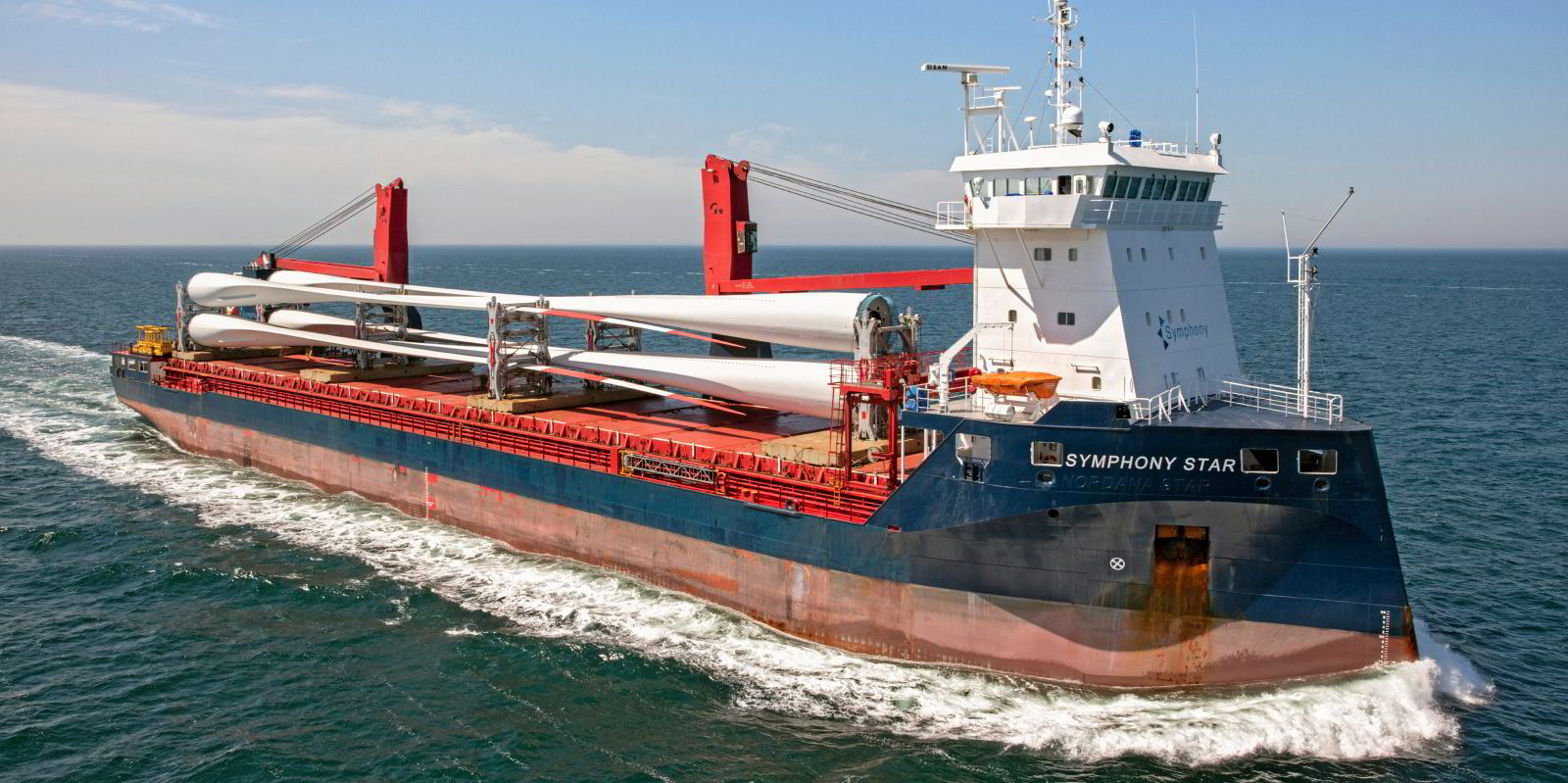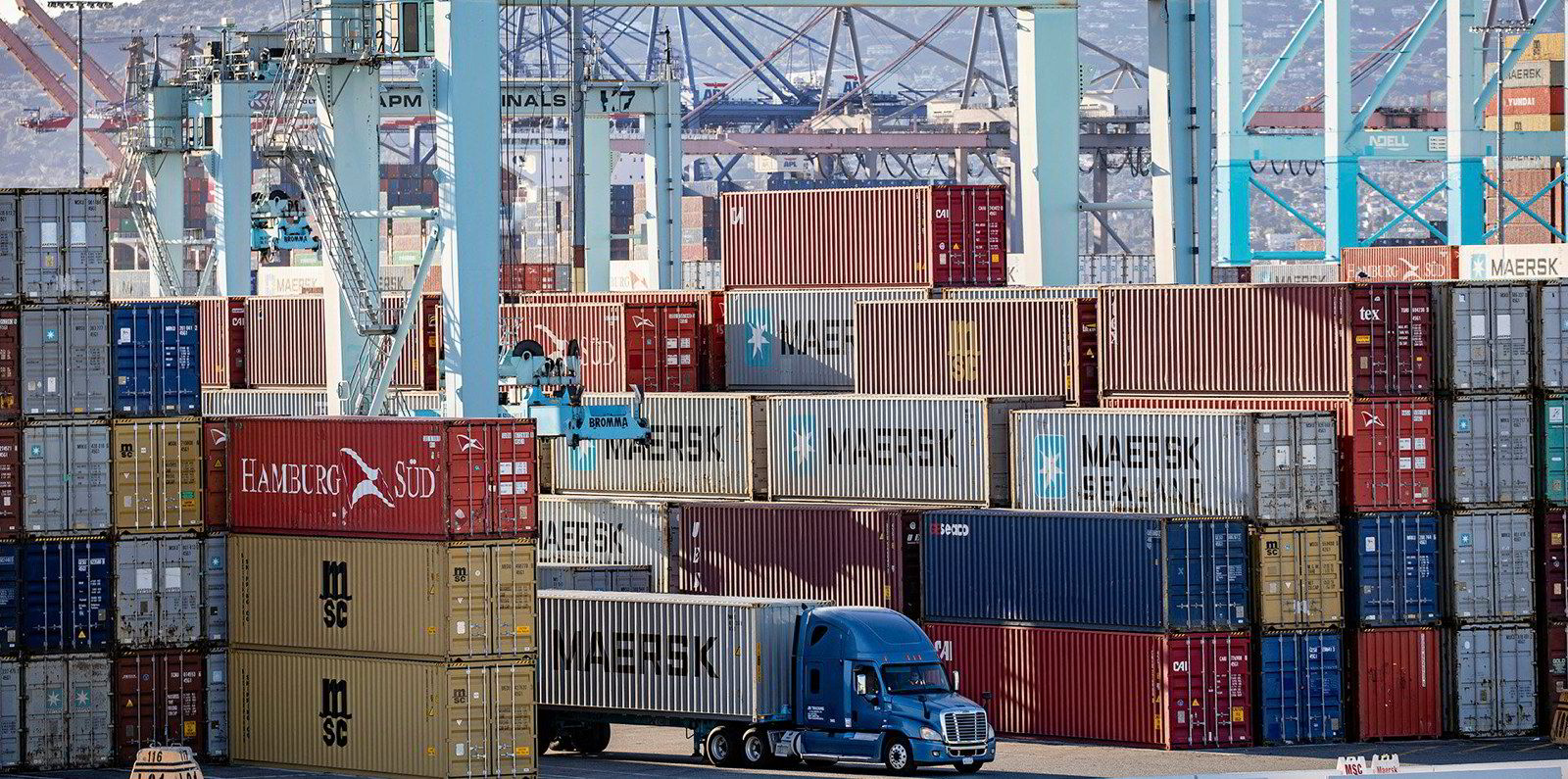Canadian handysize specialist Fednav is supplementing its normal commodity and breakbulk cargoes with loadings for cryptocurrency trades and is hoping for more.
At least two recent Far East-to-Atlantic sailings have included containerised deck cargoes for a Chinese cryptocurrency miner in a hurry to relocate to the US, according to an operational source who spoke to TradeWinds on condition they not be identified.
Sailings of two sisterships newly delivered from Japan’s Oshima Shipbuilding — the 34,500-dwt Federal Frontier and Federal Fraser (both built 2021) — have featured about 120 teu each containing servers for a company believed to be Chinese-US joint venture Viking Data Centers, which is located in the US state of Ohio.
The move is part of broader industry-wide evacuation of Chinese cryptocurrency facilities, following the country’s ban last year on the power-intensive industry.
AIS data shows that soon after delivery from Oshima, the Federal Frontier called at Hyundai Steel Dangjin Steel Mill in South Korea and loaded to full draught.
But the fully laden ship then diverted to China, calling on 15 September at Xiamen’s Zhangzhou Container Terminal and then departing with no change of draught. It proceeded to Baltimore’s Seagirt Marine Terminal, where it called on 23 October, registering only a tiny change of draught before proceeding to discharge at ports in Canada.
Its sistership Federal Fraser followed a similar route six weeks later.
The small cargo offloaded at Baltimore was destined for North Canton in the US state of Ohio, the source told TradeWinds.
That is the site of Viking, a joint venture of New York-listed, Hong Kong-based Bit Mining Ltd and an Ohio partner. Viking featured in local news reports last October, when it announced it would build a large cryptocurrency facility in North Canton that required 150 MW of electrical power.
The reason was regulation. Bit Mining had been notified last June by authorities in China’s Sichuan province that its power would be cut off there the next day.
Its migration to Ohio has been rapid, with start of operations in October and an expected completion of the North Canton plant in March, according to a recent prospectus it filed with the New York Stock Exchange.
Chinese data security regulations may slow the pace of Bit Mining’s shipping programme somewhat. The government must inspect each server to make sure the data it contains does not violate export restrictions.
No information was available on the rate Bit Mining is paying to ship its servers, or on the prospect for more loadings.
“We do not comment on individual customers’ shipments,” said a spokesman for Montreal-based Fednav in response to an enquiry from TradeWinds.
But Fednav acknowledged that its ships have been in a position to take advantage of the current wave of non-traditional cargoes.
“Our core business is in the dry bulk sector,” said the spokesman. “However, we experienced an increase in demand for cargoes typically shipped in containers, and a demand to ship containers since 2021.”
Fednav looks to do more such business.
“Since our Lakers are fitted to carry containers up to 400 teu, we have carried containers on two voyages. We expect this trend to continue until the container market imbalances and bottlenecks are restored,” said the spokesman.





